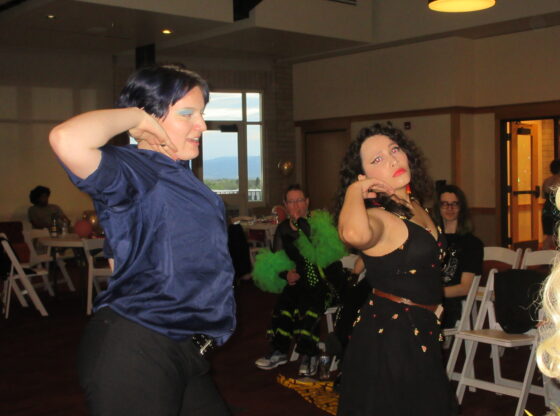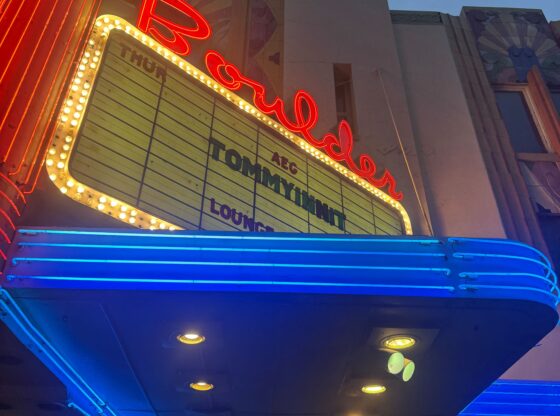Paul Simon, one half of the folk band “Simon and Garfunkel” visited Denver for three nights, seven years after what was supposed to be his last performance on his farewell tour. His sophisticated harmonies and bittersweet lyricism led him to fame during the mid-1960s and 60 years later, Simon’s music still resonates.
The songs were subtle, more acoustic than their recordings. Simon would strum his guitar periodically aided by light accompaniment, making every song, even pop hits like “You Can Call Me Al,” understated. The show’s tone matched the title, aptly named “A Quiet Celebration.”
The concert’s venue, The Paramount Theatre, was intimate. Even though I sat in the bloodiest of the nosebleeds, the show still felt personal. Although he has been able to fill larger areas like Ball Arena and Red Rocks, The Paramount Theatre matched Simon’s accommodations.
Simon, who began to lose his hearing in 2020, was not expected to play live again. But, with the aid of specialized equipment, the tour was made possible. Since the venue was so small, the acoustics and stage were optimal for all of his performance requirements.
Unlike his past concerts, Simon broke it up into two sets, opening the show with “Seven Psalms,” an album released in 2023, composed entirely of hymns where he debates his faith and “what we’re supposed to do with the time we’ve been allotted.”
Religion has been an integral theme throughout his discography, referenced in songs like “Hearts and Bones,” “The Boxer” and “Duncan.” Traditional gospel music aided Simon’s sound during his album “Graceland,” but it was most pronounced during “Seven Psalms.”
After playing all 33 minutes of the Grammy-nominated album, Simon switched to his hits, peppered with “deep tracks” like “Train in the Distance” and “St. Judy’s Comet,” which he remarked he has been unable to play until now.
Even through his most notable songs like “Graceland” and “Homeward Bound,” the theatre was silent. It was unlike every other concert I have been to. Usually, boosted speakers blare the music so loudly that I cannot hear the person next to me sing along. Yet, apart from chanting the chorus to “50 Ways to Leave Your Lover,” the crowd seemed entranced by Simon.
The stage was quite bare; a small band made a half circle around Simon as he sat on a stool playing his guitar. While a screen was projected above the musician, it was used sporadically, only to show a reference to the song’s inspiration, like a photo of Joseph Shabalala, who inspired the song “Under African Skies” as it played.
The concert wrapped with Simon singing “The Sound of Silence” alone on the stage. It is his most famous song, a pensive ballad about isolation and inaction. The song, written when Simon was 21, is just as moving when he performs it at 83.












